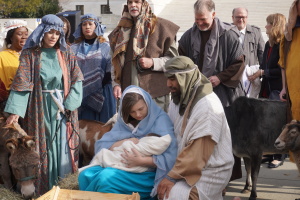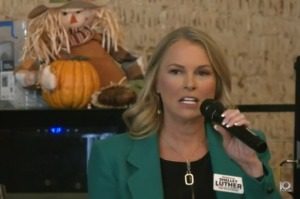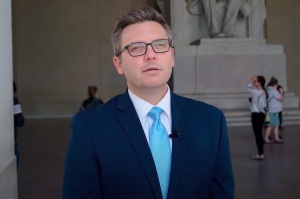Egypt Death Toll Rises as Civilian Protests Enter Third Day
Christians Fear Upcoming Elections Will Lead to Further Marginalization
Over 23 people have been killed in weekend clashes between police and civilians in Cairo, Egypt.
With the nation's parliamentary elections a mere week away, civilians have been taking to the streets to express their desire for a civilian government.
According to The Associated Press, Egypt's Health Ministry reported that 1,750 people have been wounded since the clashes began Saturday. Police are reportedly using tear gas and rubber bullets to control the crowd, which grew by the thousands on Monday.
Although Egypt's current ruling military regime promised to step down after upcoming parliamentary elections, leaders changed their tune in October, saying they will maintain complete power of Egypt's government until there is a ratification of a new constitution and a formation of a constitutional assembly.
The military government has estimated that they will relinquish power in late 2012 to 2013, but civilians are demanding a more concrete date.
Egypt's Coptic Christians are especially fearful of further marginalization with the upcoming parliamentary elections starting on Nov. 28.
Reports indicate Christians and mainstream Muslim stand united against militry rule. Christians reportedly stood guard during protests while their Muslim brethren prayed.
Over recent months, Christians in the predominately Islamic country have been anxious about their future because Islamic groups, which remained underground or inactive during the rule of the now ousted president Hosni Mubarak, became more socially and politically active following the fall of the regime in a Jan. 25 revolution.
The Egyptian Union for Human Rights recently conducted a poll revealing that 67 percent of 40,000 Christians will not vote in the November parliamentary elections.
Many fear the current military regime and Islamic radicals are creating a sectarian society against Christians, whose population has already diminished by 95,000 since the wave of uprisings began in February.
"The risk is that Islamist parties will gain substantial influence, and political debates ultimately will become debates about the proper interpretation of Shariah [Islamic law], and that's a conversation in which the Copts won’t have any part," said Eric Trager, a fellow of the Washington Institute for Near Ear Policy, to The Washington Times.
Recently, parliament contenders have infiltrated Islamic places of worship to preach their electoral message.
"The enforcement of God's law is coming," said Islamic contender Sobhi Saleh in a sermon in Alexandria.
Tension between Christians and Muslims heightened after Oct. 9, when 27 protesters were killed during a peaceful protest against the burning of a Coptic Church in Southern Aswan on Sept. 30.
Many blamed the military for the violence, arguing the Military regime and state television created a sectarian society, pitting Christians against Muslims and the military.
Christians, along with a growing number of Egyptian civilians, fear continued military rule could slight any chances of democratic freedom in the recently liberated country.




























